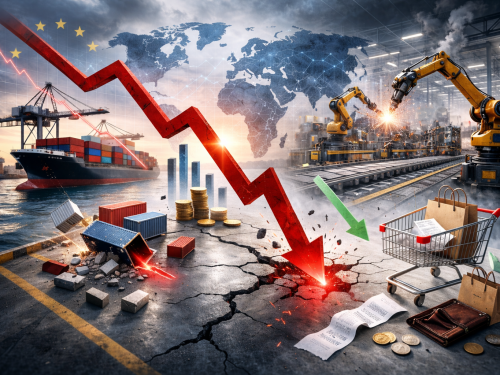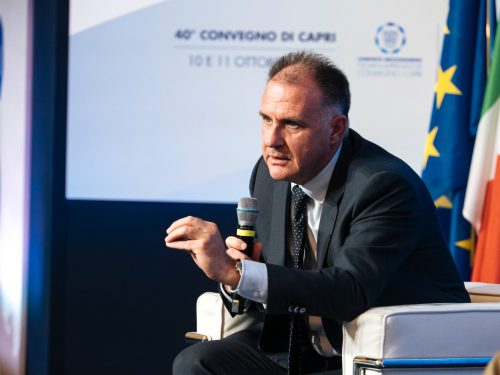News
Share on
"The risk of from 25% is a very frightening threat, which cannot be explained considering that theEurope has always been a partner of the United States and not a commercial opponent'. Thus Lucia Aleotti, Vice President of Confindustria with responsibility for the Study Centre, in an extensive interview with The Press and guest of Bruno Vespa at Porta a Porta for an in-depth look at the damage to the Italian economy following the news about US duties.
"President Orsini spoke of a 'dark hour'. What is most worrying is that this risks being the final blow to a sector, the industrial sector, which in Europe is severely tested by the political choices of the Green deal that are putting European industries out of competitiveness," explained Aleotti, according to whom "a strong and urgent reaction" is now needed from the European Union and "a quantum leap in business support". The VP added that "on Wednesday in Brussels they presented the new Clean industrial dealbut unfortunately it does not go in the right direction, it does not give the slightest push that is needed to relocate companies and jobs on the continent. We are already the most virtuous continent in the world in terms of environmental respect, and these policies risk handing over our production mainly to China, which instead has multiplied its Co2 emissions fivefold since the 1990s'.
For Aleotti, 'On these issues we now absolutely have to open a reflection in that extraordinary way that Europe has already shown itself capable of in times of great crisis. Because in the face of an initiative like the one announced by Trump alarm bells must be rung, not only in the European headquarters, but in all households, in all companies because the economy of our continent is on theindustry holding up'.
It is crucial, according to the Vice President, that 'all the forces of a great country such as Italy, the government but also the opposition' collectively make their voices heard in the European forum to demand a total change of pace and real attention to the industrial issue: 'That would be really important'. 'We hope that the response that Europe will give will not be one of opposition because we would lose both,' explained Aleotti, recalling that 'Italy is a great exporting country and exports are the component of our economy that more than others has kept Italy on its feet in recent years and has also made medium-sized companies grow. It is clear that for us the risk is great and does not only concern our exports but also the possibility that Chinese exports, once prevented from entering the United States, may even come to us at a lower cost'. "It is difficult to give a one-size-fits-all answer. Certainly the thing they are trying to do, and which they are also asking the European Union to facilitate, is to open up new markets,' stressed Aleotti. I am thinking first of all of the MercosurBeing able to have relations with the Latin American area is very important at this time'.
Aleotti concluded with a focus on thepharmaceutical industryone of the sectors most exposed to the new duties: 'There is a great interconnection between Italy and the US in terms of both exports and imports. American companies have invested in Italy and ours have invested in the US and this is one of the best examples of effective collaboration. If we broaden our gaze to the level of the Italian system, an important element to take into consideration is precisely the fact that our companies have invested an average of EUR 5 billion per year in the US in the period 2022-2023, compared to American investments in our country of one and a half billion. For us, the US is not a land of conquest but a land of investment, and this is an important element that should now be taken into due consideration'.




